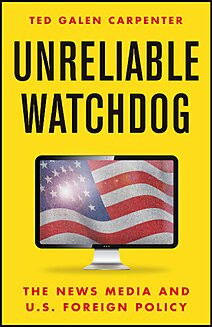Freedom of the press is a cornerstone of our democratic political system. But reporters, pundits, and editors face intense pressure to adopt and amplify government messages in their coverage of U.S. foreign policy. In Unreliable Watchdog, Ted Galen Carpenter focuses on the nature and extent of the American news media’s willingness to accept official accounts and policy justifications, too often throwing skepticism aside. Unreliable Watchdog jump‐starts a badly needed conversation about how the press must improve its coverage of foreign policy and national security issues if it is to serve its proper role for the American people. Join us as the author and discussant explore why so many journalists―as well as social media platforms―seem willing to collaborate with government officials in pushing an activist foreign policy.




